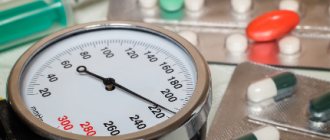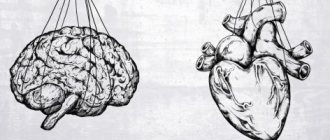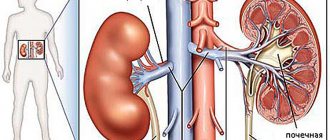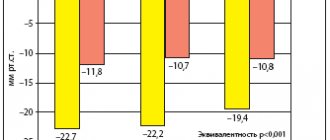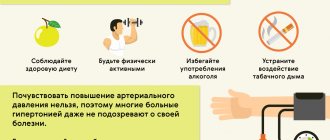They are a group of diverse medications that have one, but essential feature - they dilate blood vessels. When prescribing therapy, they are used to redistribute the volume of blood in the human body.
Also, such medications help speed up the recovery process and improve nutrition of damaged organs and tissues. In addition, one of these drugs may be prescribed if necessary to reduce the blood pressure exerted on the vascular walls.
Mechanism of action
- The vasodilating effect is a natural physiologically determined reaction of the blood vessels of the human body to various influences.
- Arteries, veins and capillaries can, if necessary, narrow or expand, as a result of which their cross-section increases, and therefore the volume of blood pumped through them increases. In this case, the vessels can expand, both locally, that is, only in one part of the body, as well as throughout the body.
- In the kidneys, as well as the retina , for example, microcirculation is developed. In other words, an extensive network of small arteries, as well as arterioles, and large arteries and veins. The expansion of all this leads to a rapid decrease in blood pressure, as well as nutrient saturation through greater blood flow.
- Completely different mechanisms of action are responsible for regulating vasodilation of the cardiovascular system, as well as the skin, tissues and organs. This especially applies to the limbs.
- Vasodilation also plays an extremely important role in body thermoregulation. When the air temperature rises, the blood vessels dilate. Thus, the body does not overheat and heat stroke does not occur.
- When the temperature drops, the blood vessels constrict, causing the body to lose less heat, which is necessary for normal functioning.
In addition to physical factors such as exposure to sunlight, the vasodilating effect can be obtained in the following ways:
- mechanical influence (such as special massage or rubbing);
- physiologically, during severe physical exertion (that is, during sports), after eating or active mental work;
- with any inflammatory process occurring inside;
- a chemical that enters the body (that is, through drugs).
During treatment, the effect can be caused artificially using a group of special pharmacological drugs or special alternative medicine.
Classification
All drugs whose pharmacological properties provoke vasodilation are divided into groups:
- vasodilators;
- calcium antagonists;
- preparations containing plant extracts.
Separately, it is necessary to highlight the remedies offered by traditional medicine. Such agents can be used to achieve the desired effect simultaneously with pharmacological drugs. In addition, folk remedies can be used to prevent disruption of blood flow to the brain.
However, you should not take such remedies thoughtlessly; you should first consult with a specialist.
As practice shows, they are effective not only in case of blood flow disturbances, but for improving brain function and its longevity (the uninterrupted functioning of this organ largely depends on the intensity of blood circulation).
The list of types of vasodilating drugs includes the following varieties:
- peripheral vasodilators;
- myotropic vasodilators;
- venous vasodilators;
- direct vasodilators;
- cerebral vasodilators;
- arterial vasodilators;
- vasodilators for renal hypertension.
Types of Vasodilators
Vasodilators differ in a number of features, the most important of which is the localization of the vessels on which they affect the pharmacological characteristics (the group to which they belong).
According to the first criterion, medications are divided into three main groups as follows:
- arterial vasodilators: affect mainly arterial vessels
- peripheral vasodilators: affect mainly the venous vessels
- mixed vasodilators: effects on arterial and venous vessels
Depending on the location of the drug, drugs are used for various diseases to improve symptoms, prolong remission (a period without exacerbation of the disease, maintaining a stable condition), and reduce the risk of developing some serious complications of the disease.
For example, arterial vasodilators are primarily used in the treatment and prevention of hypertension and heart failure, while peripheral vasodilators are primarily prescribed for angina pectoris.
Depending on the group of drugs to which they belong, there are several main groups of representatives, namely:
- organic nitrates: include various agents such as glyceryl trinitrate, isosorbide dinitrate, isosorbide mononitrate and the like, and are one of the main and oldest drugs used in the treatment of angina pectoris. They act primarily as a vasoconstrictor on the capacitance vessels, reducing the preload of the heart and dilating the coronary vessels. They are used in all types of angina pectoris, myocardial infarction, congestive heart failure, hypertensive crisis, etc. The main risk of long-term use is related to their mechanism of action. To reduce the risk of developing tolerance (without affecting the usual dose and the need for dose escalation), it is recommended to provide a non-nitrate interval of at least 8 hours (once or twice a day, namely to ensure a non-nitrate interval)
- Calcium antagonists: nifedipine, nicardipine, verapamil and other calcium channels block slowly and reduce the concentration of intracellular calcium in the vessels and myocardium, leading to dilation of the coronary and peripheral arteries and a decrease in afterload. They are mainly used in combination with their anti-skeletal and antihypertensive functions, as verapamil is also used in some forms of arrhythmia. Nimodipine, cinnarizine, flunarizine are called cerebral vasodilators and are useful for cerebrovascular disorders (post-traumatic, atherosclerotic, ischemic, etc.)
- ACE inhibitors: enalapril, lisinopril, perindopril, and another block of angiotensin-converting enzyme responsible for the conversion of angiotensin 1 into the powerful vasoconstrictor angiotensin 2 and thus reduces peripheral vascular resistance, have a beneficial effect on cardiac preload and afterload, they are especially suitable for patients with underlying diabetes mellitus and impaired renal function
- Angiotensin II antagonists: valsartan, losartan and others block certain receptors involved in renin-angiotensin-aldosterone, thereby suppressing the vasoconstrictor effect of angiotensin 2. They are used most often in intolerance or contraindications to the administration of ACE inhibitors, as shown to be highly effective and have a relatively low risk of side effects effects
Certain groups of drugs, as well as individual representatives, have a number of advantages and disadvantages, so it is necessary to prescribe therapy individually for each patient.
Indications for use
The need to take medications that dilate blood vessels may occur in the following cases:
- frequent and prolonged headaches;
- periodic tinnitus;
- dizziness, especially worse when turning the head;
- pain in the ears and eyes;
- Fatigue too quickly when performing intense mental work or tasks that require serious visual strain.
Drugs that dilate arteries, veins, and capillaries are intended to specifically affect the circulatory system of the brain, including adrenergic blockers, calcium channel blockers, and special medications designed to improve blood circulation in the brain.
Special medications are of greatest importance in treating problems with the circulation of the most important organ.
Instructions for use
Direct vasodilators are used only after consulting a doctor based on tests and instrumental research methods. The accuracy of dosage depends on the disease, age and other characteristics of the patient. The injectable form is administered to the patient only under the supervision of a physician. Any deviation from the dose prescribed by the doctor may lead to side effects or overdose. Vasodilators are prescribed starting with the lowest dose, then gradually increasing it. It is not recommended to skip the next dose of medication due to the possible onset of withdrawal syndrome. Before using any medicine in this group, read the instructions, read the special instructions and method of use.
Good to know! When taking emergency medications, you must take a horizontal position, otherwise collapse with loss of consciousness may occur.
Interestingly, the same drugs in this group can treat a variety of diseases in the body. For example, pentoxifylline fights varicose veins or thromboembolism in the lower extremities, and also helps nourish the brain. But in the first and second cases, the dosage of the product will be different. This is why there is no need to self-medicate.
List of drugs
The list of remedies that can help improve blood circulation by dilating blood vessels includes:
- Apressin , which belongs to the group of vasodilators , reduces the resistance of the walls of resistance vessels (their name is arterioles), as a result of which the level of pressure exerted on the walls of the arteries decreases.
Also, taking the medication can relieve stress on the myocardium and also increases cardiac output. Features of the effects of apressin include reflex activation of the sympathetic nervous system, as a result of which cardiac output increases and also causes tachycardia (very fast heartbeat). The latter can in some cases lead to increased angina. So it is imperative to take this drug after consulting a doctor. - Molsidomine . When taken, there is a decrease in the tone of peripheral vessels (they are called venules), and also reduces the volume of venous blood going to the heart. Under the influence of the drug, the blood pressure on the walls of the pulmonary artery decreases, and the filling of the left ventricle of the heart with blood decreases and the tension in the walls of the heart muscle decreases. The drug reduces platelet sticking together (such clots often clog small vessels) and improves collateral blood flow, which bypasses the affected artery.
- Sodium nitroprusside is a highly effective medicine. Dilates arterioles, as well as some veins. When entering the body through the veins, the effect is achieved very quickly, however, it is relatively short-lived. Thus, it reduces the load on the heart. Sodium nitroprusside is used when prescribing complex therapy in cases of acute heart failure.
- No-spa , which relieves spasms and can relieve pain and improve blood circulation;
- Glycine , which dilates the blood vessels of the brain, thus improving its nutrition. Taking this drug helps improve thinking and remembering new information.
- Nitroglycerin , which has the ability to weaken the smooth muscles of the walls of blood vessels. The coronary arteries are most susceptible to this effect. When exposed to the active components of the drug, the volume of venous blood that returns to the heart decreases (this reduces the load on this organ), contractions of the heart muscle are activated and, at the same time, the need of heart tissue for much-needed oxygen is reduced.
- Piracetam , which has been known for more than half a century and still has not lost its relevance in the treatment of diseases of the vascular system. It belongs to the group of nootropic drugs that have an antihypoxic effect on the human body. The main effect is on brain tissue. At the same time, a person’s well-being, as well as the work of his most important organ, noticeably improves. This drug is available Injections allow you to achieve the fastest results, however, as in all other cases, this method of delivering active substances to the body is associated with certain difficulties.
- Pentoxifylline , which helps improve tissue nutrition and blood microcirculation in the vessels of the brain by expanding them.
Available both in the form of tablets and in the form of concentrated solutions in ampoules. When it enters the body, platelet aggregation decreases. Such a remedy must be taken as prescribed and under the supervision of a doctor. The fact is that platelets are extremely important for our body. If their quantity is insufficient, blood clotting is significantly reduced and bleeding may occur. Internal bleeding is especially dangerous, if only because it can be detected late. - Calcium antagonists. The already mentioned drugs from this group, which are often used to reduce the tone of the blood vessels of the brain, include Nimodipine and Cinnarizine. These medications block slow calcium channels found in the smooth muscle cells of arteries. Thus, expansion occurs arterial bed. However, with all this, blockers have almost no effect on the vessels; they pump venous blood, resulting in an increased flow of oxygenated arterial blood to the brain tissues. This improves metabolic processes locally. These drugs are often prescribed to peoplewho were diagnosed with atherosclerosis. If we talk about Cinnarizine, in addition to its vasodilating effect, this drug also has a nootropic effect. So taking the drug can improve brain function. The drug is available in tablet form
. Before you start taking them, you should definitely consult with a specialist, since the risk of developing quite dangerous side effects is very high.
To - Papaverine belongs to the list of antispasmodics with myotropic action. Moreover, it can be prescribed not only when it is necessary to dilate cerebral vessels, but also to relieve tension in the smooth muscles of internal organs. Produced by pharmacological companies in the form of solutions in ampoules and tablets. Each ampoule and tablet may have a different concentration of the active substance. So you need to choose the right dosage. Here you will find more detailed information about the drugs Diabazol and Papaverine.
Are there risks associated with vasodilators?
Like many medications, vasodilators have a number of side effects. Some of them do not threaten health, while others significantly interfere with a person’s normal life.
List of common unwanted effects:
- dizziness, headache;
- nausea, vomiting;
- fatigue, weakness, apathy;
- fluid retention in the body;
- redness of some areas of the body;
- blood sugar surges;
- epigastric pain;
- aches in muscles, joints;
- dry cough;
- changes in laboratory readings.
These side effects often occur in people. who take medications incorrectly or intentionally exceed the dose prescribed by the doctor. These symptoms go away after stopping the vasodilators. If side effects occur after the first use of the medicine, you should immediately consult a doctor and change the drug. For some drugs in this group, the duration of therapy is of great importance, since many of them accumulate in the body causing side effects.
Some vasodilators are not compatible with other medications and can cause toxic effects on the liver and kidneys. It is especially important to point out to your doctor the list of medications you are taking. One cannot remain silent about the concurrent use of medications for diabetes, epilepsy, cardiac ischemia, arrhythmia, depression and high cholesterol. Some dietary supplements may also affect the mechanism of action of vasodilators. These include coenzyme Q10, vitamin B3, niacin, magnesium. Among food products, you should avoid cocoa, caffeine, and garlic.
It is important to know! In some annotations, pregnancy and breastfeeding may not be seen as contraindications. This does not mean that the drug is approved for use; rather, it indicates that the drug has been insufficiently studied.
Prices for drugs
The cost of the drug depends on its effectiveness and availability of the drug. The most budget option is perhaps glycine, which costs less than a hundred rubles. This product is more of a supplement that helps improve brain function. for minor problems it can still help, but for serious ones it is unlikely.
The most expensive ones are available with a prescription from a doctor. For example, Venarus, which costs about seven hundred rubles. This drug is intended to treat cerebral vessels and dilates blood vessels to improve access to arterial blood to brain tissue.
